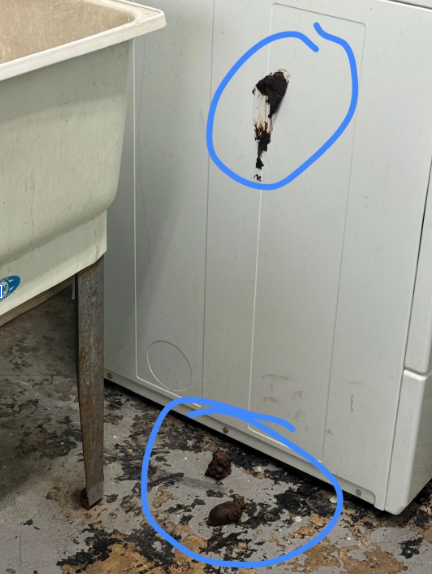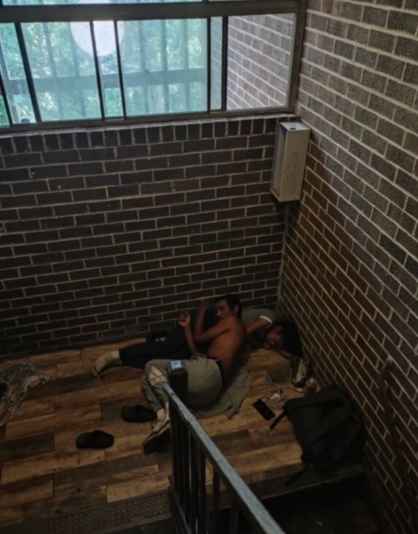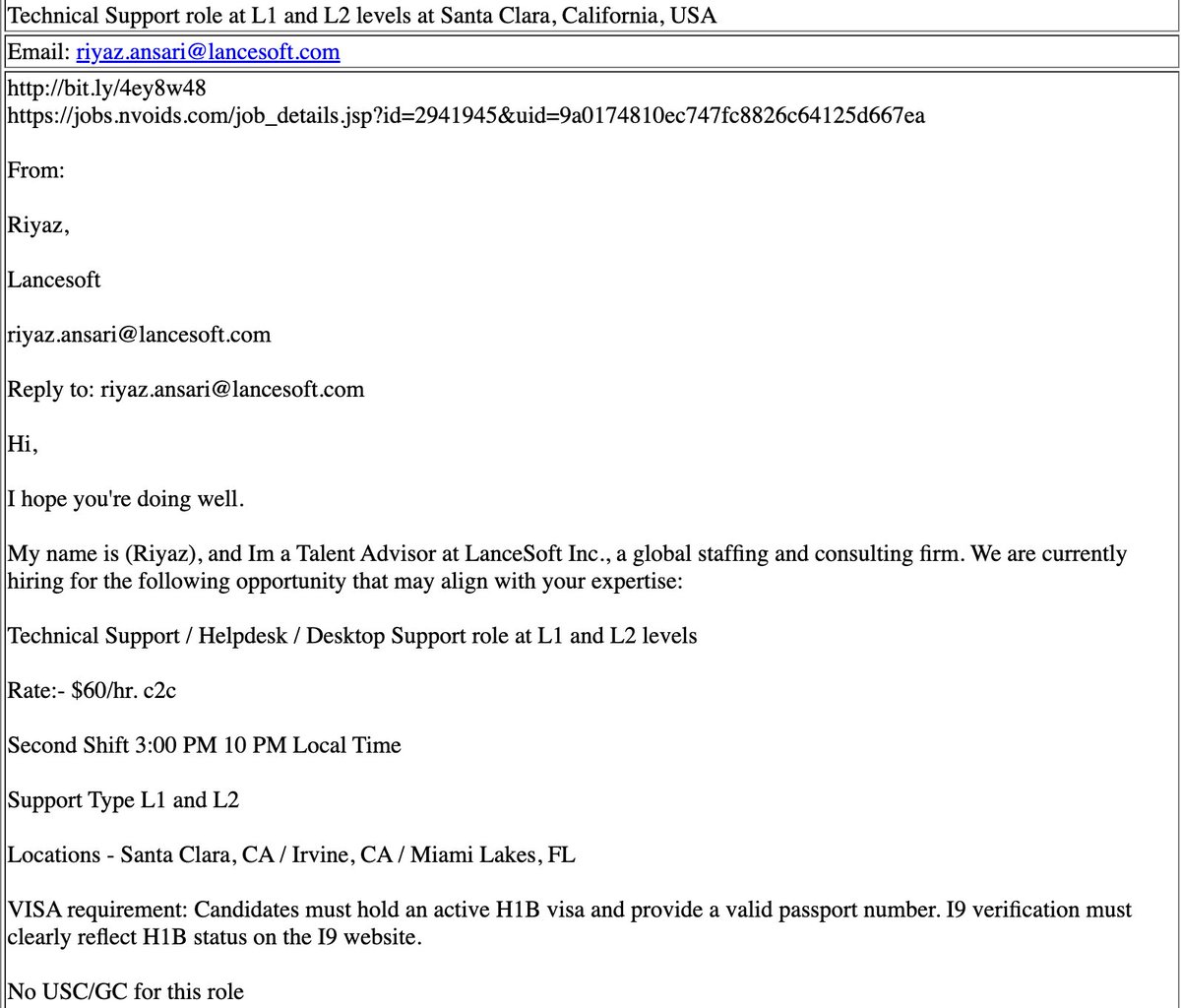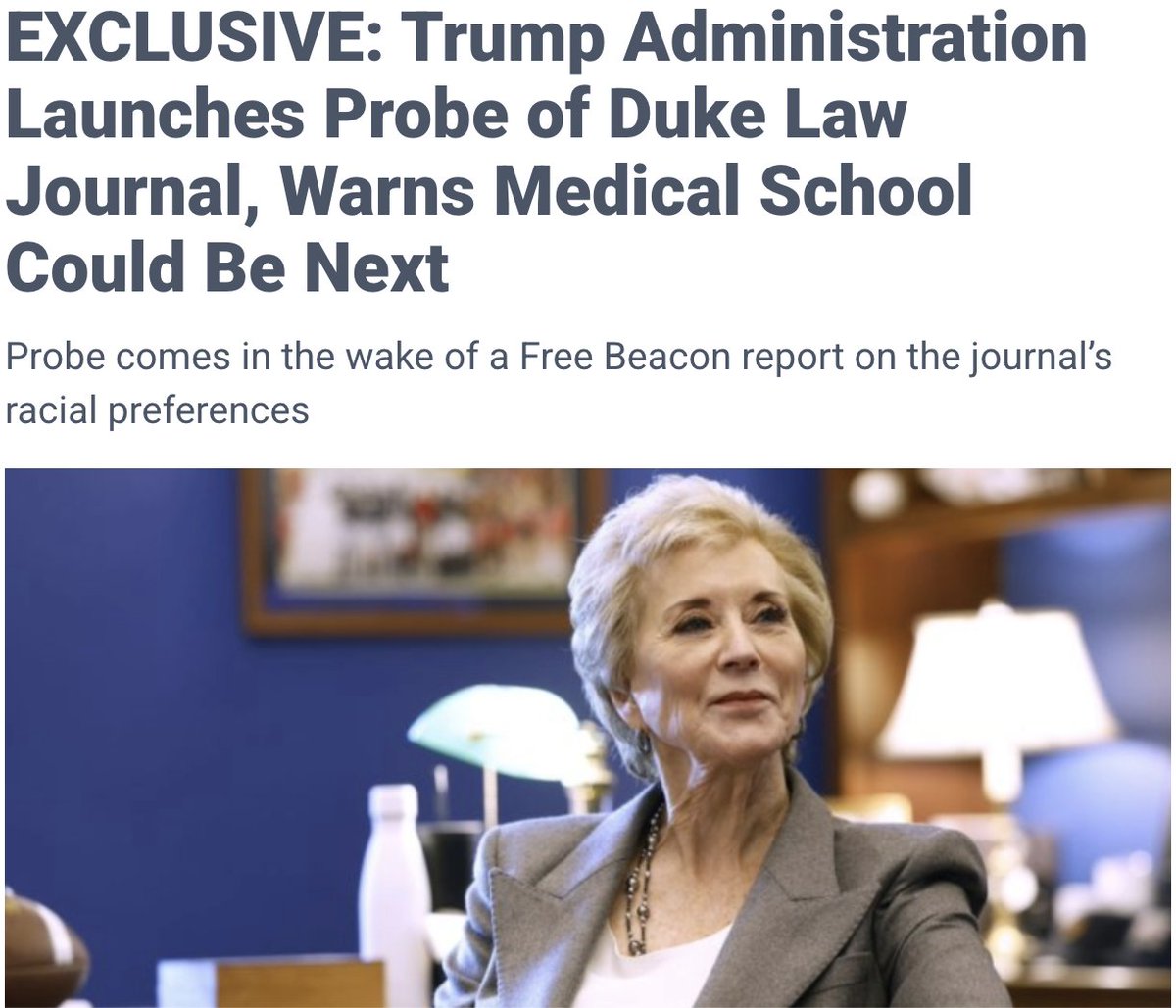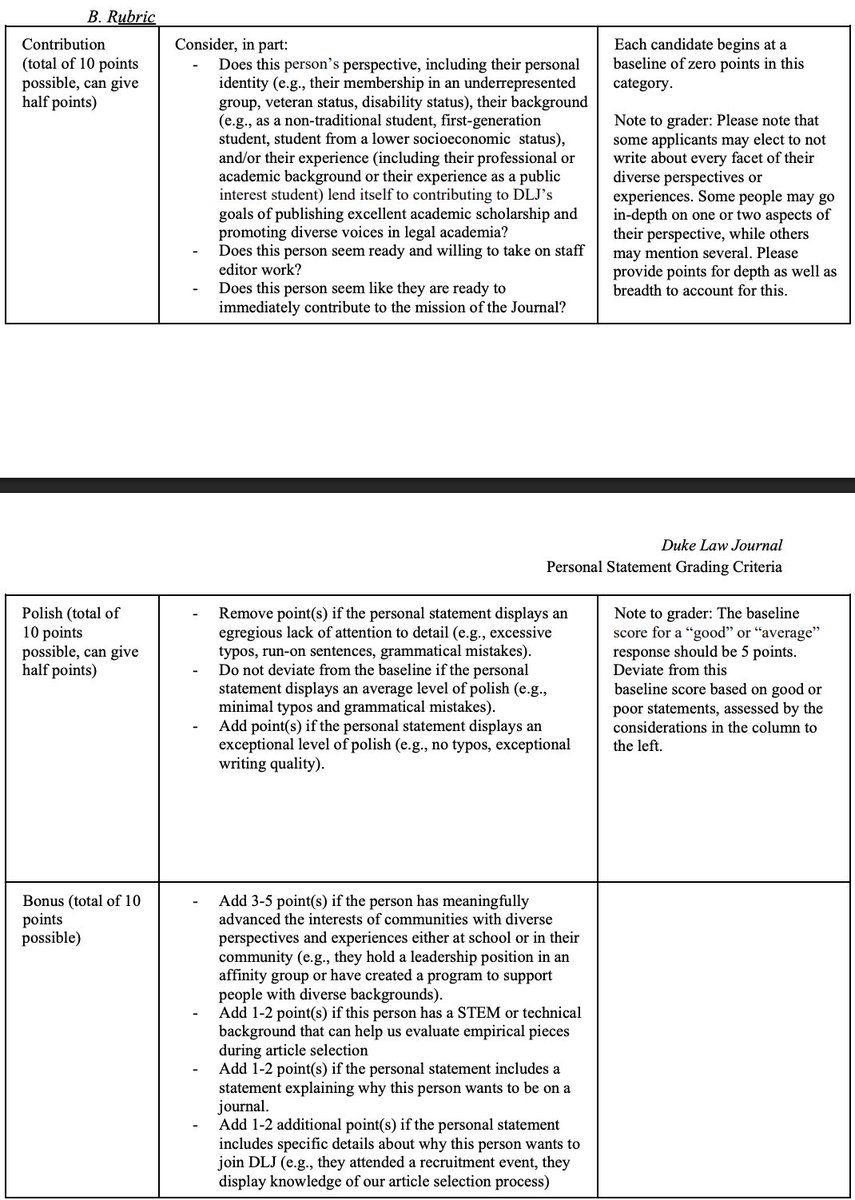SCOOP: Whistleblowers at UCLA medical school say it has dramatically lowered admissions standards for minority applicants.
As a result, they say, 50% of some cohorts now fail basic tests of medical competence.
We've obtained shocking internal data.🧵
freebeacon.com/campus/a-faile…

As a result, they say, 50% of some cohorts now fail basic tests of medical competence.
We've obtained shocking internal data.🧵
freebeacon.com/campus/a-faile…
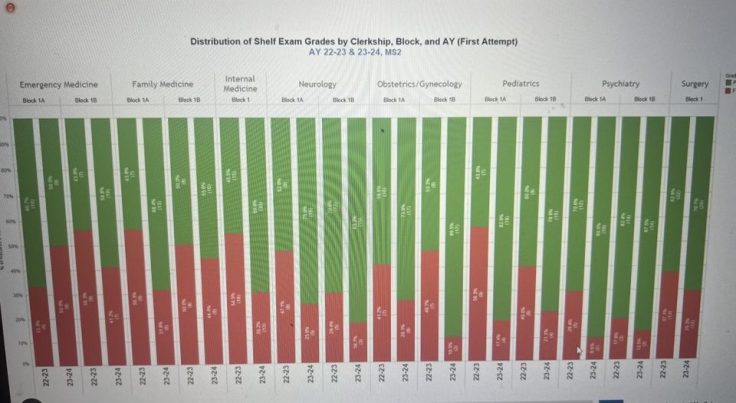
UCLA medical school hired a new dean of admissions, Jennifer Lucero, In 2020. Since then, the number of students failing their shelf exams—standardized tests taken after each clinical rotation—has exploded, rising as much as tenfold in some subjects.
That wasn't a coincidence.
That wasn't a coincidence.

Race-based admissions have turned UCLA into a "failed medical school," said a former member of the admissions staff. "We want racial diversity so badly, we're willing to cut corners to get it."
This is the story of how that happened.
This is the story of how that happened.
Led by Lucero, who also serves as the DEI czar of UCLA's anesthesiology department, the admissions committee gives black and Latino applicants a pass for subpar metrics, four people who served on it said, while whites and Asians need near perfect scores to even be considered.
Committee members who try to uphold standards are silenced. Two sources said Lucero attacked an admissions officer for raising concerns about an applicant with low test scores.
"Did you not know African-American women are dying at a higher rate than everybody else?" she asked.
"Did you not know African-American women are dying at a higher rate than everybody else?" she asked.

The candidate's scores shouldn't matter, she continued, because "we need people like this in the medical school."
"We are not consistent in the way we apply the metrics to these applicants," one admissions official emailed colleagues after the incident. "This is troubling."
"We are not consistent in the way we apply the metrics to these applicants," one admissions official emailed colleagues after the incident. "This is troubling."
"I wondered," the official added, "if this applicant had been [a] white male, or [an] Asian female for that matter, [whether] we would have had that much discussion."
This story is based on written correspondence between UCLA officials, internal data on student performance, and interviews with eight professors at the medical school—six of whom have worked with or under Lucero on medical student and residency admissions.
Together, they provide an unprecedented account of how racial preferences, outlawed in California since 1996, have nonetheless continued, upending academic standards at one of the top medical schools in the country.
The school has consequently taken a hit in the rankings and seen a sharp rise in the number of students failing basic standardized tests, raising concerns about their clinical competence.
"I have students on their rotation who don't know anything," an admissions official said.
"I have students on their rotation who don't know anything," an admissions official said.
It is almost unheard of for admissions officers to go public with stories from confidential deliberations, much less to accuse their colleagues of breaking the law or lowering standards. They've agreed to come forward because the drop in student performance has been so alarming.
"I wouldn't normally talk to a reporter," a UCLA faculty member said. "But there's no way to stop this without embarrassing the medical school."
Within three years of Lucero's hire, UCLA dropped from 6th to 18th place in U.S. News & World Report's rankings for medical research.
Within three years of Lucero's hire, UCLA dropped from 6th to 18th place in U.S. News & World Report's rankings for medical research.
And in some of the cohorts she admitted, more than 50 percent of students failed standardized tests on emergency medicine, family medicine, internal medicine, and pediatrics. 

Those tests, known as shelf exams, which are typically taken at the end of each clinical rotation, measure basic medical knowledge and play a pivotal role in residency applications. Though only 5 percent of students fail each test nationally, the rates are much higher at UCLA.
Failure rates have increased tenfold in some subjects since Lucero took over admissions.
That uptick coincided with a steep drop in the number of Asian matriculants and tracks the subjective impressions of faculty who say that students have never been more poorly prepared.
That uptick coincided with a steep drop in the number of Asian matriculants and tracks the subjective impressions of faculty who say that students have never been more poorly prepared.
One professor said that a student in the operating room could not identify a major artery when asked, then berated the professor for putting her on the spot.
Another said that students at the end of their clinical rotations don't know basic lab tests and, in some cases, are unable to present patients.
"I don't know how some of these students are going to be junior doctors," the professor said.
"I don't know how some of these students are going to be junior doctors," the professor said.
"Faculty are seeing a shocking decline in knowledge of medical students."
And for those who've seen the competency crisis up close, double standards in admissions are a big part of the problem.
And for those who've seen the competency crisis up close, double standards in admissions are a big part of the problem.
"All the normal criteria for getting into medical school only apply to people of certain races," an admissions officer said. "For other people, those criteria are completely disregarded."
Another admissions officer said that the bar for underrepresented minorities is "as low as you could possibly imagine" and "completely disregards grades and achievements."
Several officials said that they support holistic admissions and don't want test scores judged in isolation. The problem, they say, is that the committee isn't just weighing academics against community service or considering how much time a given kid had to study for the MCAT.
For certain applicants, they say, hardship and community service seem to be the only things that matter to the majority of the committee's 20-30 members, many of whom were handpicked by Lucero, according to people familiar with the selection process.
"We were always outnumbered," an admissions officer told the Free Beacon, referring to committee members who expressed concern about low grades. "Other people would get upset when we brought up GPA."
Lucero hasn't been kind to dissenters. Speaking on the condition of anonymity, six people who've worked with her described a pattern of racially charged incidents that has dispirited officials and pushed some of them to resign from the committee.
She has lashed out at officials who question the qualifications of minority candidates, five sources said, suggesting naysayers are "privileged," implying that they are racist, and subjecting them to diversity training sessions.
After a Native American applicant was rejected in 2021, for example, Lucero chewed out the committee and made members sit through a two-hour lecture on Native history delivered by her own sister, according to three people familiar with the incident.
In the anesthesiology department, where Lucero helps rank applicants for residencies, she has rebuffed calls to blind the race of candidates, telling colleagues in a 2023 email that, despite California's ban on racial preferences, "we are not required to blind any information."
That alone could get UCLA in legal trouble, according to Adam Mortara, the lead trial lawyer for the plaintiffs in Students for Fair Admissions v. Harvard, the Supreme Court case that outlawed affirmative action nationwide.
Asking for information about an applicant's race when "no lawful use can be made of it" is "presumptively illegal," Mortara said. "You can't have evidence of overt discrimination like this and not have someone come forward" as a plaintiff.
Lucero has even advocated moving candidates up or down the residency rank list based on race. At a meeting in 2022, per two people present, she demanded a highly qualified white male be knocked down several spots because, as she put it, "we have too many of his kind" already.
She also told those who voiced concern that they had no right to an opinion because they were "not BIPOC" and insisted that a Hispanic applicant who had performed poorly on her anesthesiology rotation in medical school should be bumped up. Neither candidate was ultimately moved.
Lucero's comments from the meeting were flagged in an email to UCLA's Discrimination Prevention Office, which has received several complaints about her since 2023, emails show.
The office has declined to act on those complaints on the grounds that they aren't "serious enough" to merit an investigation, according to a source with direct knowledge of the situation.
The focus on diversity has coincided with a dramatic shift in the racial and ethnic composition of the medical school, where the number of Asian matriculants fell by almost a third between 2019 and 2022. No other elite medical school in California saw a similar decline. 
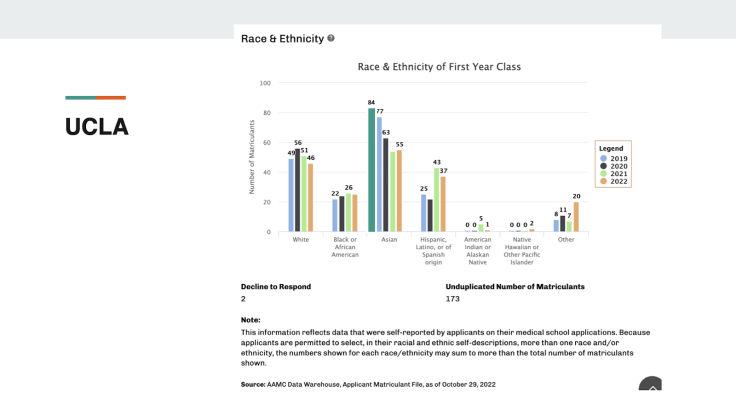
As the demographics of UCLA have changed, the number of students failing their shelf exams has soared, trends professors at the medical school say are connected.
Between 2020, the year Lucero assumed her post, and 2023, when the first classes she admitted were taking their shelf exams, the failure rate rose dramatically across all subjects, in some cases increasing tenfold relative to the 2020 baseline. 

"1/3 to 1/2 of the medical school is incredibly unqualified," one prof said.
The collapse in qualifications has been compounded by UCLA's decision, in 2020, to condense its preclinical curriculum from two years to one in order to add time for research and community service.
The collapse in qualifications has been compounded by UCLA's decision, in 2020, to condense its preclinical curriculum from two years to one in order to add time for research and community service.
That means students arrive at their clinical rotations with just a year of courses under their belt—some of which focus less on science than social justice.
First-year students spend three to four hours every other week in "Structural Racism and Health Equity," a required class that covers topics like "fatphobia," has featured anti-Semitic speakers, and is now the subject of an internal review. freebeacon.com/campus/pedagog…
They spend an additional seven hours a week in "Foundations of Practice," which includes units on "interpersonal communication skills" and, according to one medical student, basically "tells us how to be a good person."
The two courses eat up time that could be spent on physiology or anatomy, professors say, and leave struggling students with fewer hours to learn the basics.
"This has been a colossal failure," one professor posted in April on a forum for medical school applicants. "The new curriculum is not working and the students are grossly unprepared for clinical rotations." forums.studentdoctor.net/threads/ucla-m…
Nearly 1/4 of UCLA students failed three or more shelf exams in 2021, forcing some students to repeat classes and persuading others to postpone the Step 2 licensing exam that's typically taken in the third year of medical school and is a prerequisite for most residency programs. 

Around 20 percent of UCLA students have not taken Step 2 by January of their fourth year, according to the data. Ten percent have not even taken the more basic Step 1—an "extremely high number," one professor said, that will force many students to extend medical school.




"It's a combination of a bad curriculum and bad selection," another professor said, referring to the admissions process. Some students are accepted with GPAs so low "they shouldn't even be applying."
As medical schools around the country adjust to the Supreme Court's affirmative action ban, the experience of UCLA offers a preview of how administrators may skirt the law and devise public-spirited excuses for violating it.
Lucero has told the admissions committee that each class should "represent" the "diversity" of California, including its remote and rural areas, so that graduating students will return to their hometowns and beef up the medical infrastructure there, officials say.
Race is rarely mentioned outright, and unlike the committee for anesthesiology residents, the committee for students does not see the race or ethnicity of applicants.
Instead, officials say, Lucero uses proxies like zip codes and euphemisms like "disadvantaged" to shut down criticism of unqualified candidates, citing a statistic that, technically, most students with below-average MCATs make it to their second year of medical school.
How well they do after that point goes undiscussed and undisclosed.
"We have asked for metrics on how these folks actually do," one committee member said. "None of that is ever divulged to us."
"We have asked for metrics on how these folks actually do," one committee member said. "None of that is ever divulged to us."
• • •
Missing some Tweet in this thread? You can try to
force a refresh


